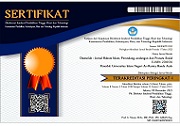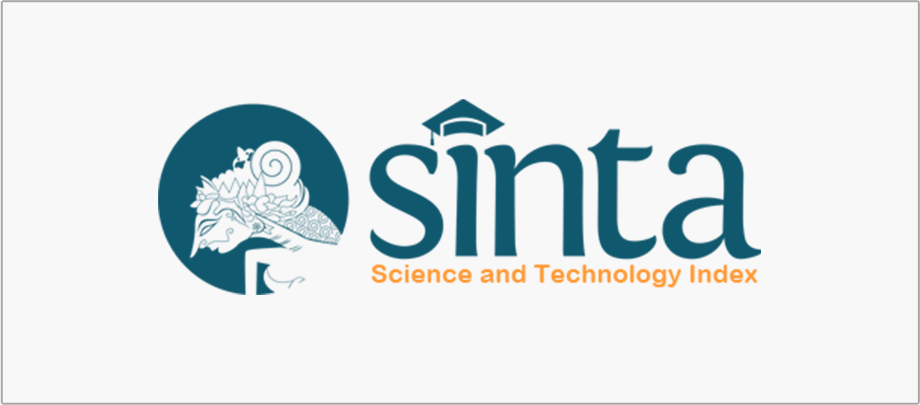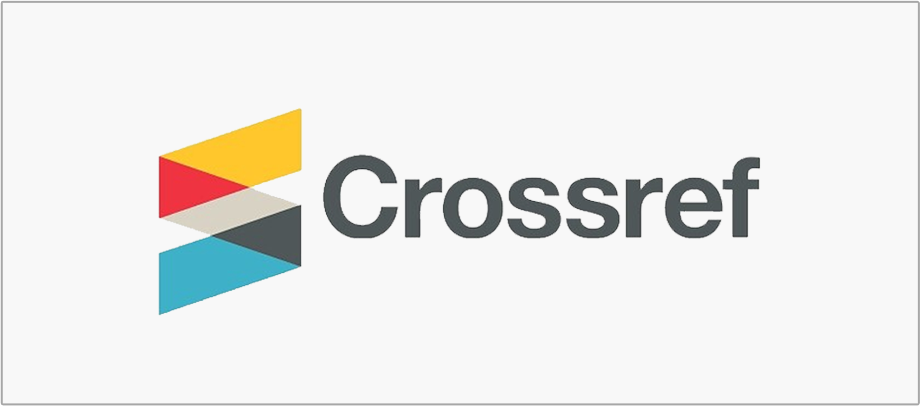CITATIONS
VIEWS OF USUL FIQIH AND ISLAMIC FAMILY LAW ON CONCERNED MARRIAGE CASES IN PADANG CITY
Abstract
This research aims to explore the perspectives on consanguineous marriage in the context of Islamic jurisprudence (usul fiqh) and Islamic family law. Research adopts a comparative and descriptive approach, gathering primary data through in-depth interviews with experts in Islamic jurisprudence and Islamic family law. The findings reveal that consanguineous marriage is firmly grounded in Islamic law, with its theological basis found in the Quran and Hadith, which unequivocally prohibit it. However, variations exist in the interpretation and emphasis between usul fiqh and Islamic family law perspectives. Social and cultural factors influence the occurrence of consanguineous marriages, with differing community understandings in Kota Padang being a key factor in disparate viewpoints. Despite these distinctions, there are commonalities, such as the prohibition of consanguineous marriage, the reliance on the Quran and Hadith as legal foundations, and the acknowledgment of negative consequences by both perspectives. Lastly, the legal principles underpinning these views in both fields center on concepts such as maslahah (public interest), maqasid syariah (objectives of Islamic law), and ta'addud al-asbab (consideration of circumstances), all aimed at safeguarding the welfare of humanity. While emphasis may differ, these principles serve as guiding frameworks for understanding the phenomenon of consanguineous marriage in Kota Padang
Keywords
Islamic Jurisprudence, Consanguineous Marriage, Islamic Family Law
Full Text:
PDFReferences
Asmuni, Asmuni. “Pengaruh Pernikahan Sedarah Terhadap Keturunan (Studi Analisis Tafsir Sains Dalam Qs. An-Nisa’: 23).” Jurnal Tana Mana Vol. 1, No. 2 (2020), 175–186. Accessed October 10, 2023. http://ojs.staialfurqan.ac.id/jtm/article/view/142.
Bahari, Raha, and Ezmi Sivana. “The Meaning Of Socio Cultural Values Fraom The Islamic Law Perspective.” MILRev : Metro Islamic Law Review Vol. 1, No. 1 (2022), 90–102. Accessed October 10, 2023. https://e-journal.metrouniv.ac.id/index.php/milrev/article/view/6192.
Danil, M. “Larangan Perkawinan Sesuku Dalam Masyarakat Canduang;(Tinjauan Kemaslahatan Dalam Hukum Islam).” Jurnal AL-AHKAM Vol. 10, No. 2 (2019), 1–29. Accessed October 10, 2023. https://ejournal.uinib.ac.id/jurnal/index.php/alahkam/article/view/1857.
Fatariq, Husnul. “Perkawinan Sesuku Di Nagari Koto Padang Luar Dalam Perspektif Hukum Islam.” Fakultas Syariah dan Hukum UIN Syarif Hidayatullah Jakarta, 2023. Accessed October 10, 2023. https://repository.uinjkt.ac.id/dspace/handle/123456789/71241.
Khalidi, Muhadi. “Kajian Hukum Islam Terhadap Ketentuan Hak Waris Anak Hasil Perkawinan Sedarah.” Supremasi Hukum: Jurnal Kajian Ilmu Hukum Vol. 11, No. 1 (2022), 105–123. Accessed October 10, 2023. https://ejournal.uin-suka.ac.id/syariah/Supremasi/article/view/2549.
Khalil, Ahmad Mohammad. “Arabization and Islamization of Consanguineous Marriages: Is It Right?” Medical Journal of Islamic World Academy of Sciences Vol. 29, No. 1 (2022), 4–14. Accessed October 10, 2023. https://jag.journalagent.com/z4/download_fulltext.asp?pdir=ias&plng=tur&un=IAS-09735.
Manalu, Sry Ayu Magdalena, Nopaldi Stepen Sinuhaji, and Sartika Sari. “Pendidikan Gender Bagi Anak Di Perkampungan Tamba Dolok Melalui Pelestarian Kisah Batu Marompa Dalam Bentuk Dongeng.” Jurnal Salaka : Jurnal Bahasa, Sastra, dan Budaya Indonesia Vol. 3, No. 2 (2021), 73–84. Accessed October 10, 2023. https://journal.unpak.ac.id/index.php/salaka/article/view/4564.
Nurlayli, Dwi Emira Mela. “Status Hukum Anak Hasil Dari Perkawinan Sedarah Dalam Tinjauan Hukum Islam (Studi Kasus Di Desa Balung Kulon Kecamatan Balung Kabupaten Jember).” UIN Kiai Haji Achmad Dahlan Jember, 2023. Accessed October 10, 2023. http://digilib.uinkhas.ac.id/id/eprint/26097.
Pimadona, Aktor, and Mulati Mulati. “Keabsahan Perkawinan Sedarah Masyarakat Adat Batak Toba Menurut Hukum Adat.” Jurnal Hukum Adigama Vol. 2, No. 1 (2019), 201–226. Accessed October 10, 2023. https://journal.untar.ac.id/index.php/adigama/article/view/5238.
Ropei, Ahmad. “Studi Penafsiran Ayat Ahkam Tentang Larangan Perkawinan Dalam Hukum Keluarga Islam.” Jurnal Pendidikan dan Keislaman Ar-Risalah Vol. 7, No. 1 (2021), 77–95. Accessed October 10, 2023. https://www.academia.edu/download/87059059/Tafsir_Larangan_Perkawinan.pdf.
Sihombing, Epi. “Peran Institusi Sosial : Analisis Postkolonial Pedagogis Terhadap Ketidaksetaraan Gender Dalam Konsep Hagabeon Pada Upacara Kematian Mate Pupur Orang Batak.” Jurnal Pendidikan Tambusa Vol. 6, No. 1 (2022), 8108–8120. Accessed October 10, 2023. https://www.jptam.org/index.php/jptam/article/download/3672/3106.
Soulisa, Muhammd Rizal, Lukman S. Thahir, and Malkan Malkan. “The Practice of Cousin Marriage in the Community of Kalola Village, Pasangkayu Regency, West Sulawesi.” International Journal Of Contemporary Islamic Law And Society Vol. 2, no. 2 (2020), 71–82. Accessed October 10, 2023. https://ijcils.org/index.php/ijcils/article/view/23.
Sufrizal, and M. Anzaikhan. “Pernikahan Sedarah Dalam Perspektif Hukum Pidana Islam.” Legalite : Jurnal Perundang Undangan dan Hukum Pidana Islam Vol. 5, No. 2 (2021), 130–149. Accessed October 10, 2023. https://journal.iainlangsa.ac.id/index.php/legalite/article/view/2782.
Surya Putra, Wiene, Selamet Syahputra, Sefira Deliana, Rasyidah Yusra, and Nurhayati. “Pernikahan Sedarah (Incest) Dari Perspektif Hukum Islam Dan Hukum Nasional.” Landraad: Jurnal Syariah & Hukum Bisnis Vol. 1, No. 2 (2022), 165–176. Accessed October 10, 2023. https://jurnal.ishlahiyah.ac.id/index.php/jl/article/view/92.
Wijaya, Budi Satria. “Analisis Yuridis Pembatalan Perkawinan Sedarah Dikaitkan Dengan Upaya Perlindungan Hukum Terhadap Anak.” Jurnal Ilmiah Mahasiswa Hukum [JIMHUM] Vol. 1, No. 2 (2021), 1–11. Accessed October 10, 2023. https://jurnalmahasiswa.umsu.ac.id/index.php/jimhum/article/view/271.
DOI: http://dx.doi.org/10.22373/dusturiyah.v13i2.20373
Refbacks
- There are currently no refbacks.
Copyright (c) 2023 Firdaus hisab
Indexed by:
Tools:
All papers published in Dusturiyah: Jurnal Hukum Islam, Perundang-undangan dan Pranata Sosial are licensed under a Creative Commons Attribution-ShareAlike 4.0 International License. |
Office address: Fakultas Syariah dan Hukum Universitas Islam Negeri Ar-Raniry. Jl. Ar-Raniry, Kopelma Darussalam, Syiah Kuala, Banda Aceh, Aceh, Indonesia 23111. Email: jurnal.dusturiyah@ar-raniry.ac.id
situs toto slot gacor slot gacor situs toto















